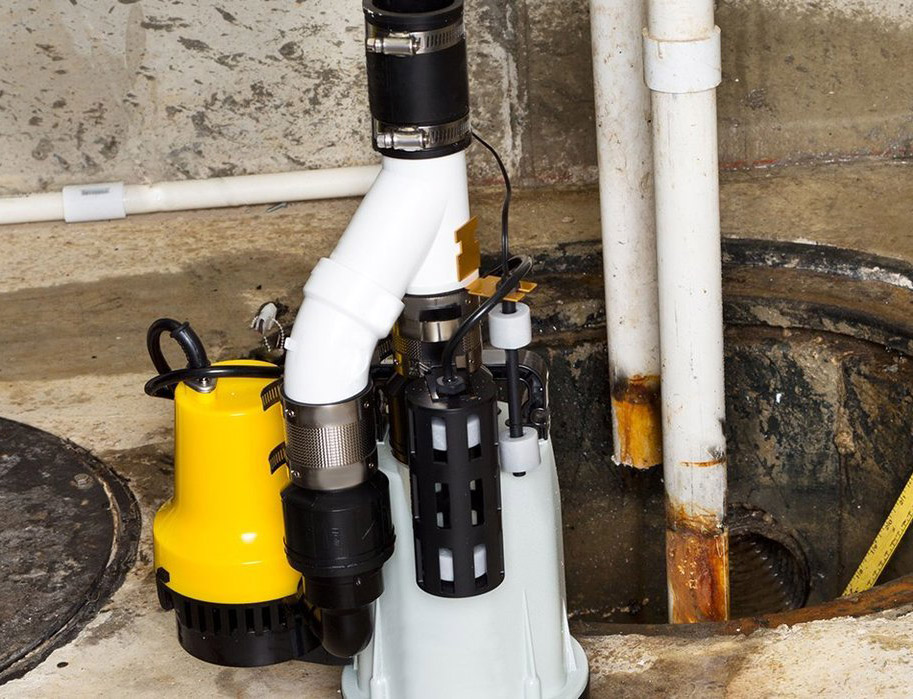Seamless Well Pump Replacement: Recovering Your Supply Of Water with Accuracy
Wiki Article
Comprehending the Key Components of Effective Water Purification Solutions

Relevance of Water Filtering Equipment
Water purification systems play an important role in making sure accessibility to clean and secure drinking water by effectively eliminating contaminants and contaminations. These systems are crucial in attending to the expanding concerns over water high quality and the potential health dangers related to eating infected water. By utilizing numerous filtering mechanisms such as reverse osmosis, triggered carbon, and UV sterilization, water filtration systems can efficiently get rid of dangerous compounds like bacteria, viruses, heavy steels, and chemicals from the water system.Moreover, water filtering systems aid to boost the taste and smell of water by removing chlorine, sediments, and various other contaminants that can impact its top quality. Well Pump Replacement. This improvement in water top quality not just makes it extra palatable but additionally urges people to drink an appropriate quantity of water daily, promoting better hydration and total health and wellness
Kinds of Purification Components

Physical filters are created to literally strain out contaminations from the water. These filters can be constructed from products like ceramic, carbon, or also sand, and they work by trapping bits larger than the filter's pores as water goes through.
Chemical filters utilize different chemical procedures to remove impurities from the water. Instances consist of activated carbon filters, which adsorb impurities, and reverse osmosis membranes, which utilize stress to separate impurities from the water.
Biological filters utilize living microorganisms like algae or bacteria to break down raw material and contaminants in the water. These filters are frequently utilized in wastewater therapy plants or all-natural water purification systems.
Understanding the different types of filtering parts is crucial for selecting one of the most suitable water purification system for particular purification requirements.
Feature of Sediment Filters
Sediment filters play an essential role in water purification systems by properly catching solid fragments put on hold in the water. These filters are generally the initial line of defense in a purification system, getting rid of bigger bits such as sand, silt, dirt, and rust prior to the water moves with finer filtration phases. By trapping these sediments, the filters stop them from reaching downstream elements, thus prolonging the lifespan and performance of the entire system.Neglecting this maintenance can lead to clogging, reduced water flow, and compromised filtration performance. click this link In general, debris filters are indispensable parts that contribute dramatically to the effectiveness of water filtering systems.
Duty of Triggered Carbon Filters
Playing an essential duty in water purification systems, activated carbon filters contribute in removing impurities and contaminants from the supply of water. These filters are designed to adsorb and trap a variety of toxins, including chlorine, unstable natural substances (VOCs), pesticides, and herbicides. The activated carbon product has a big surface location, permitting for the effective trapping of impurities via a process called adsorption. As water travels through the filter, the turned on carbon attracts and holds onto the pollutants, ensuring that the water that comes out on the other side is cleaner and more secure for usage.Activated carbon filters are very effective at boosting the taste and odor of water by decreasing chemicals that can impact its high quality. They are also with the ability of getting rid of certain heavy steels like lead and mercury. Additionally, these filters can aid stop the build-up of germs and algae in water, more improving its overall quality. Because of their convenience and reliability, activated carbon filters are an essential element in making certain that water is cleansed to the highest possible requirements prior to official site reaching consumers.
Understanding Reverse Osmosis Solutions
Reverse osmosis systems are sophisticated water filtration systems that utilize a sophisticated procedure to remove pollutants and impurities from drinking water. These systems work by using pressure to the water, compeling it via a semi-permeable membrane layer. This membrane layer serves as a barrier, permitting just distilled water particles to go through, while blocking bigger molecules such as minerals, chemicals, and other pollutants. As a result, the water that comes out beyond is considerably cleaner and more secure for intake.One key advantage of reverse osmosis systems is their capability to eliminate a vast array of pollutants, consisting of hefty steels, dissolved solids, germs, and viruses. This makes them extremely reliable in improving the total high quality and safety and security of drinking water. Additionally, reverse osmosis systems are relatively low-maintenance and can be installed under the sink or in a main purification system, offering practical accessibility to tidy water throughout the household. Generally, understanding how reverse osmosis systems work can assist people make informed decisions about their water filtering demands.
Conclusion
In final thought, efficient water filtration systems are important for ensuring tidy and risk-free alcohol consumption water. The essential elements of these systems consist of sediment filters, turned on carbon filters, and reverse osmosis systems. By comprehending the function and function click here now of each component, individuals can make informed decisions when selecting a water purification system. It is important to focus on the high quality of water in order to advertise overall health and wellness and wellness.Water filtering systems play an essential role in ensuring access to tidy and safe alcohol consumption water by successfully eliminating pollutants and contaminants. By using different filtering mechanisms such as reverse osmosis, triggered carbon, and UV sterilization, water purification systems can effectively get rid of harmful compounds like microorganisms, viruses, heavy metals, and chemicals from the water supply.
Debris filters play a critical function in water purification systems by efficiently recording strong particles suspended in the water (Water Treatment).Playing an essential duty in water filtering systems, activated carbon filters are critical in removing impurities and impurities from the water supply.Reverse osmosis systems are sophisticated water filtering systems that employ an innovative process to get rid of contaminants and impurities from drinking water
Report this wiki page